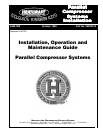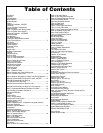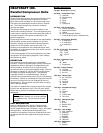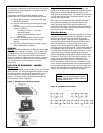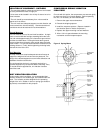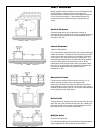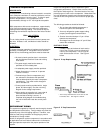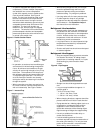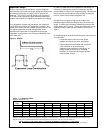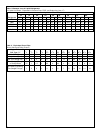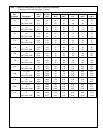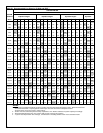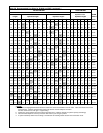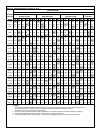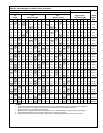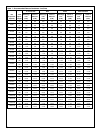
4
Figure 2. Vibration Pad Locations
SYSTEM WARRANTY
This equipment is designed to operate properly and produce
the rated capacity when installed in accordance with good
refrigeration practice.
The following conditions should be adhered to when
installing this unit to maintain the manufacturers warranty.
(a) System piping must be in accordance with good
refrigeration practices.
(b) Inert gas must be charged into the piping during
brazing.
(c) The power supply to the unit must meet the
following conditions:
• All voltages must be +/- 10% of the
nameplate ratings.
• Phase (voltage) imbalance cannot
exceed 2%.
(d) All control and safety switch circuits must be
properly connected according to the wiring
diagram.
(e) The factory installed wiring must not be changed
without written factory approval.
RIGGING
Warning:
Careful considerations for lifting should be made
before the unit is lifted by any means. The only part of the
unit designed to carry any of the lifting load is the welded
channel base. The unit may be lifted at the base with a
forklift or by means of cables at the four corners of the base.
If cables are used, the lifting cables should be prevented
from contacting any of the unit piping or electrical
components.
LOCATION OF EQUIPMENT - INDOOR
Clearances
The parallel systems should be located so they are level and
easily serviced. The minimum suggested clearance around
the units should be 24 inches at the rear and 42 inches in
the front of panel (or as required by National or Local
Codes). For parallel system units placed end to end, 24
inches between units is suggested.
Floor & Foundation Requirements
The total weight of a single unit will vary between 1200
pounds and 10,000 pounds. Allowances must be made for
the parallel rack and all other equipment installed in the
same area as the parallel units. The location and installation
of all equipment should be in accordance with all local and
national code requirements.
While each unit is constructed with a welded steel base
frame adequately designed to withstand vibration, the
natural pulsating action of the interconnected motor-
compressors may cause considerable noise and vibration if
the unit is not mounted on a firm level surface and isolated
from the structure of the building.
Vibration Mounts
In ordinary ground level or basement installations, all that is
necessary to assure a vibration-free installation is to place
the unit on the concrete floor with the waffle-surfaced
resilient pads supplied. See Figure 2 for suggested pad
locations. Mezzanine and other installations require some
special considerations. The equivalent of 6 inch thick
properly reinforced concrete floor must be provided for
mounting parallel units above grade. It is recommended that
the suggestions previously given for rigid floor construction
on above-grade installations be closely adhered to. If this is
not possible, special vibration absorbing spring mounts
(optional equipment) must be placed under the base frame
of each unit. See Figure 1 for view of Spring Isolator. The
spring mounts are placed under the unit and the unit
carefully lowered on to the mounts. Note that no other
mounting hardware is required and any unevenness in the
floor or uneven weight distribution may be compensated for
by turning the spring mount leveling nuts with an open-end
wrench. This adjustment should be made after all piping is
installed and the system is charged with refrigerant.
NOTE: Turn each leveling nut until the tip
casting rises 1/4" to 3/8" above the bottom
casting. MOUNT ADJUSTMENT SHOULD
NEVER EXCEED 3/4".
Figure 1. Vibration Pad and Spring Isolator



